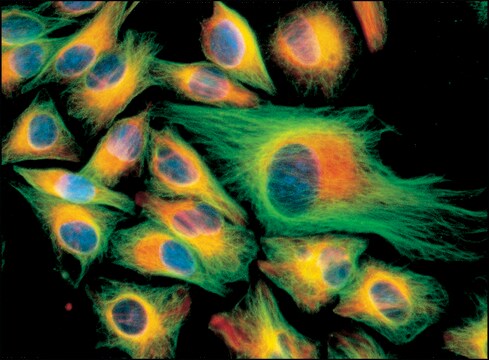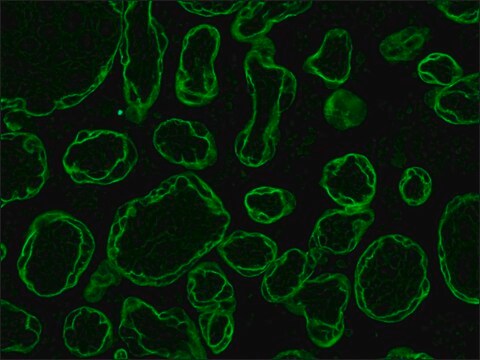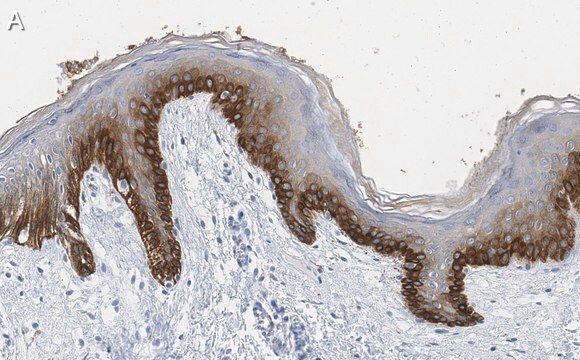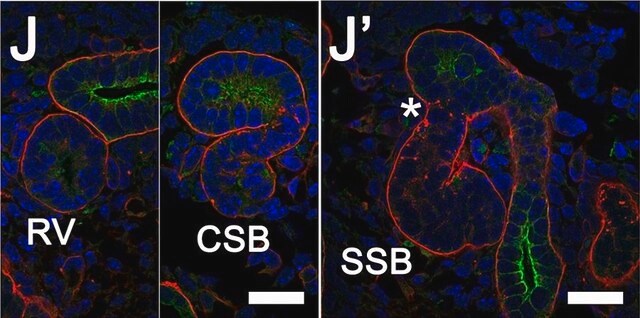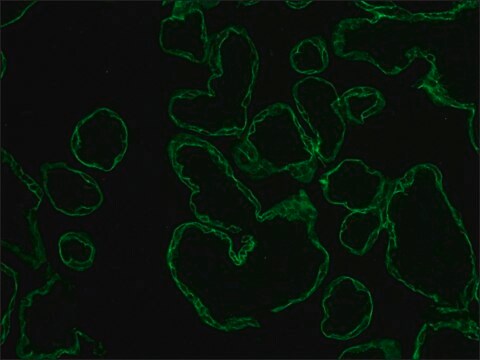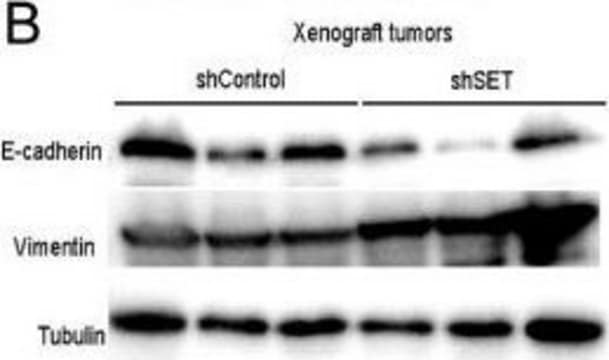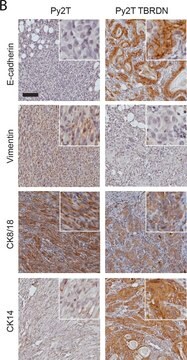C5992
Anti-Cytokeratin, pan antibody, Mouse monoclonal
clone PCK-26, purified from hybridoma cell culture
Synonym(s):
Monoclonal Anti-pan-Cytokeratin, Anti-Cytokeratin, Anti-Cytokeratin - Monoclonal Anti-Cytokeratin, pan antibody produced in mouse
About This Item
Recommended Products
biological source
mouse
Quality Level
conjugate
unconjugated
antibody form
purified from hybridoma cell culture
antibody product type
primary antibodies
clone
PCK-26, monoclonal
form
buffered aqueous solution
species reactivity
human, chicken, snake, hamster, pig, goat, feline, bovine, carp, rat, rabbit, canine, lizard, sheep, mouse, guinea pig
packaging
antibody small pack of 25 μL
concentration
~1.5 mg/mL
technique(s)
dot blot: suitable
immunocytochemistry: suitable
immunohistochemistry: 10-20 μg/mL using human placenta or skin
western blot: suitable
isotype
IgG1
shipped in
dry ice
storage temp.
−20°C
target post-translational modification
unmodified
Gene Information
bovine ... Krt1(100301161)
dog ... Krt1(444857)
human ... KRT1(3848) , KRT1(3848) , KRT1(3848) , KRT5(3852) , KRT5(3852) , KRT5(3852) , KRT6A(3868) , KRT6A(3868) , KRT6A(3868) , KRT6B(3854) , KRT6B(3854) , KRT6B(3854) , KRT8(3856) , KRT8(3856) , KRT8(3856)
mouse ... KRT1(16678) , KRT1(16678) , KRT1(16678) , Krt1(16678) , Krt5(110308) , Krt5(110308) , Krt5(110308) , Krt6a(16687) , Krt6a(16687) , Krt6a(16687) , Krt6b(16688) , Krt6b(16688) , Krt6b(16688) , Krt8(16691) , Krt8(16691) , Krt8(16691)
rat ... Krt1(300250) , Krt2-5(369017) , Krt2-5(369017) , Krt2-5(369017) , Krt2-8(25626) , Krt2-8(25626) , Krt2-8(25626)
Looking for similar products? Visit Product Comparison Guide
General description
Specificity
Immunogen
Application
Immunofluorescence (1 paper)
- immunoblotting
- immunohistochemistry
- Immunocytochemistry
- dot blotting
Biochem/physiol Actions
Physical form
Disclaimer
Not finding the right product?
Try our Product Selector Tool.
recommended
related product
Storage Class Code
12 - Non Combustible Liquids
WGK
WGK 1
Flash Point(F)
Not applicable
Flash Point(C)
Not applicable
Certificates of Analysis (COA)
Search for Certificates of Analysis (COA) by entering the products Lot/Batch Number. Lot and Batch Numbers can be found on a product’s label following the words ‘Lot’ or ‘Batch’.
Already Own This Product?
Find documentation for the products that you have recently purchased in the Document Library.
Our team of scientists has experience in all areas of research including Life Science, Material Science, Chemical Synthesis, Chromatography, Analytical and many others.
Contact Technical Service